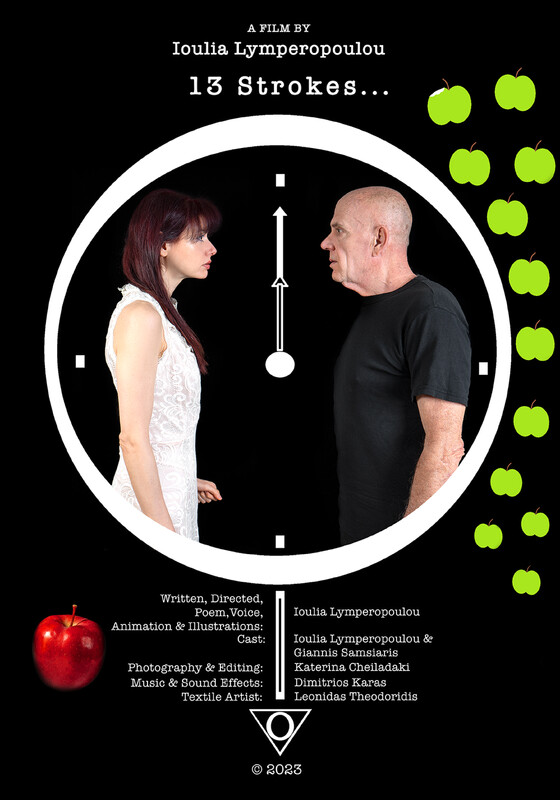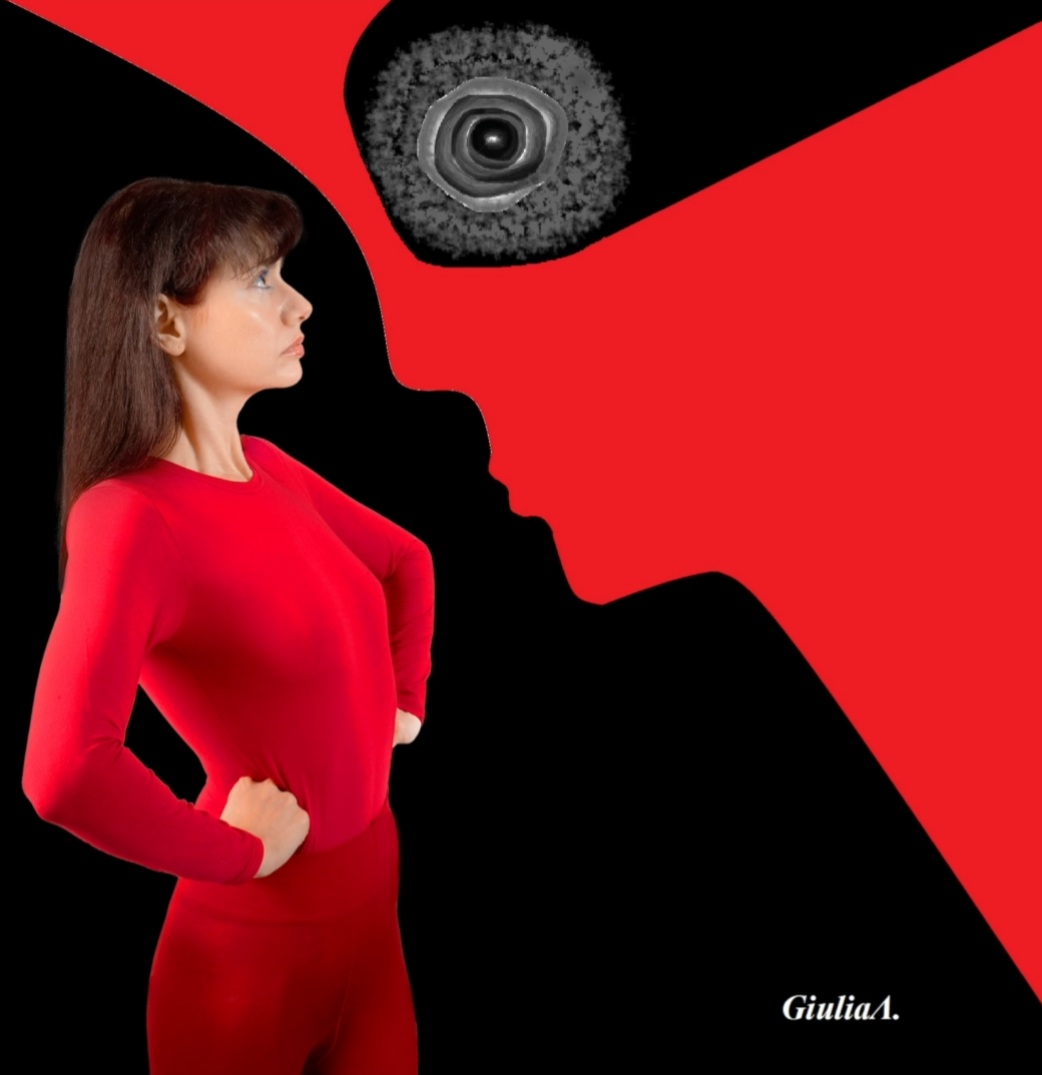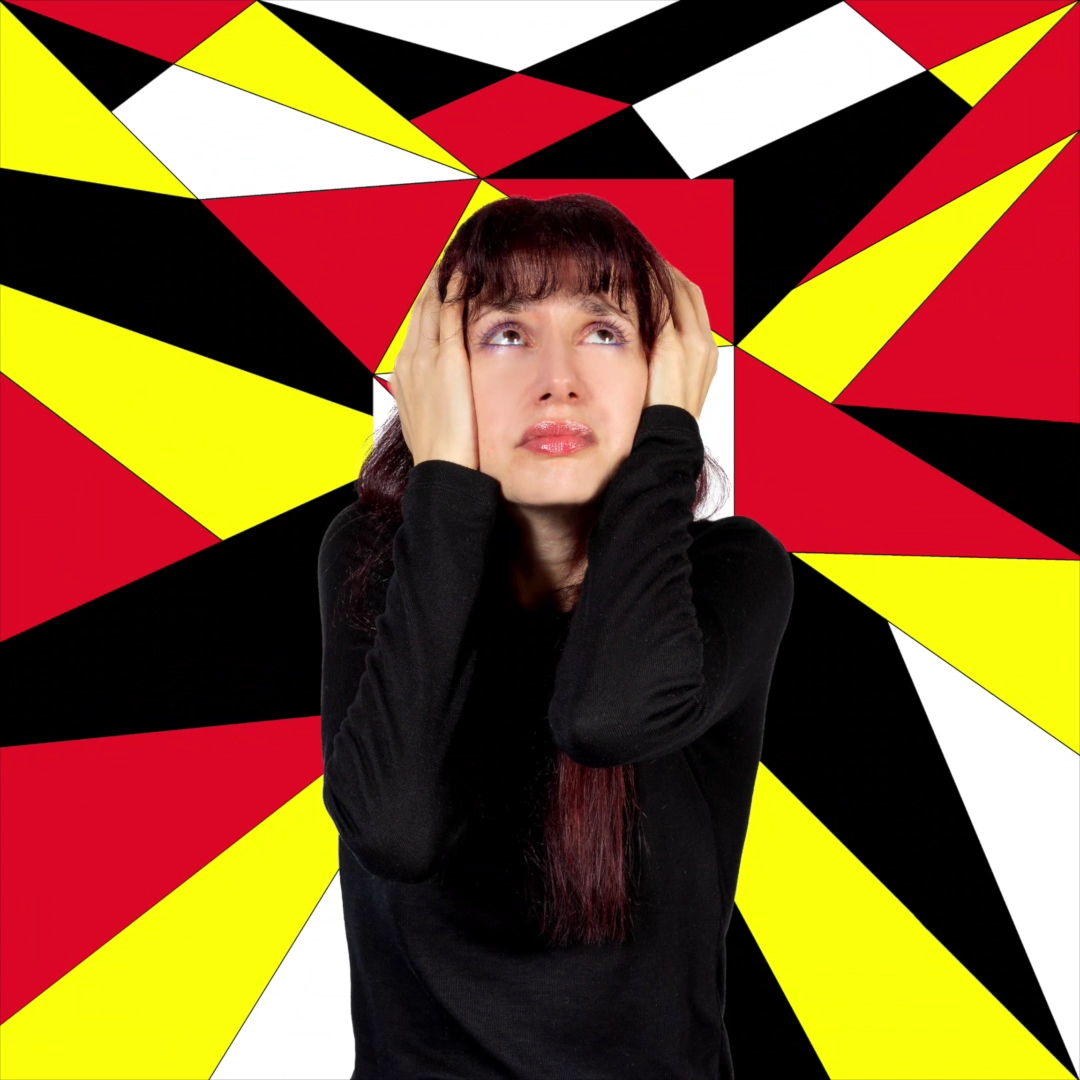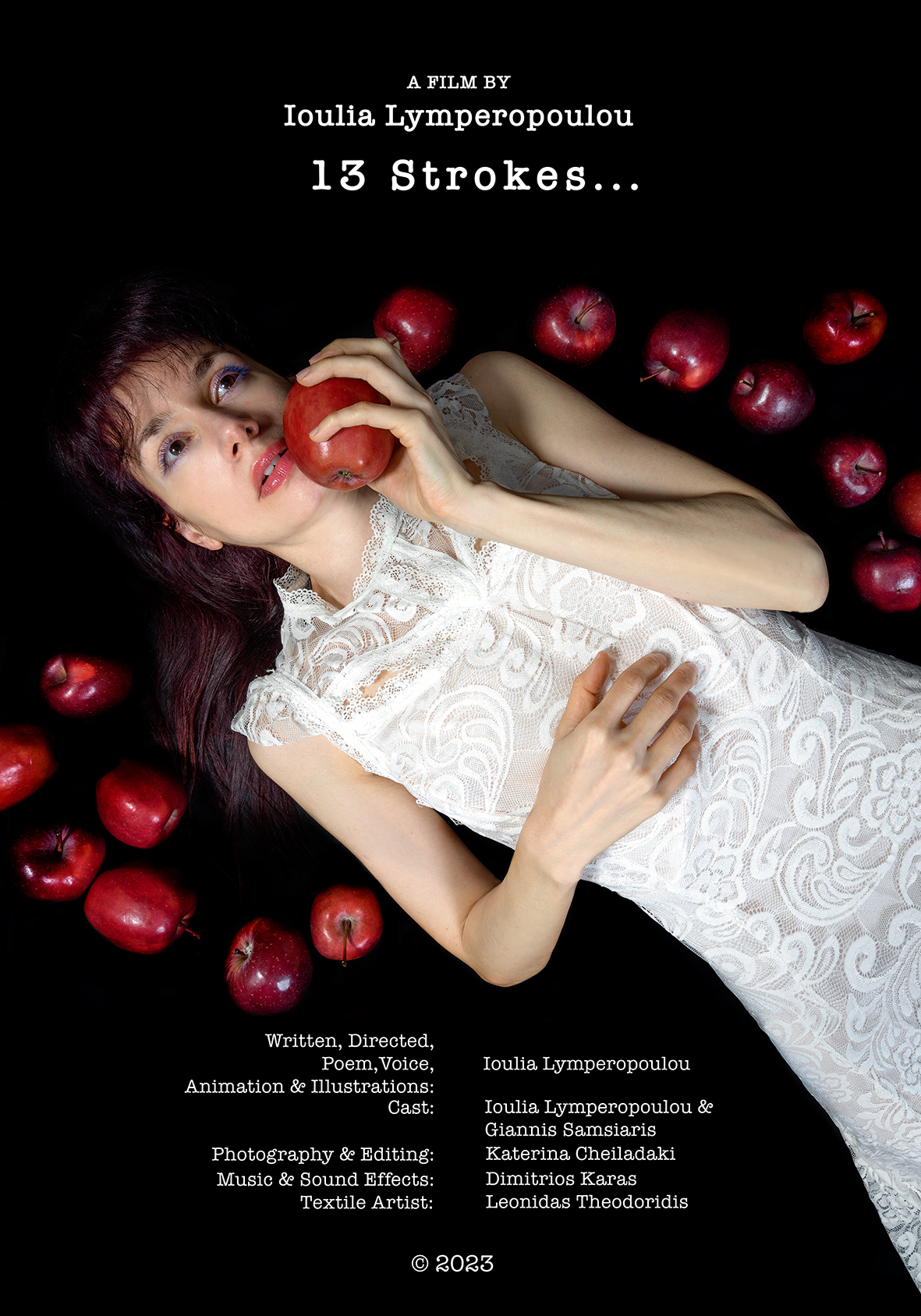Ioulia Lymperopoulou
Ioulia Lymperopoulou is a Greek Italian writer born in Athens, in 1978.
She graduated from the Historical-Archaeological Faculty, Majoring in History, and attended a 2 year postgraduate study, in "Modern and Modern Greek and European History", with a thesis on German-language interwar literature, at the University of Ioannina.
Worked on research projects, historical archives.
Was involved in theatre, television, short film productions.
She graduated from the Historical-Archaeological Faculty, Majoring in History, and attended a 2 year postgraduate study, in "Modern and Modern Greek and European History", with a thesis on German-language interwar literature, at the University of Ioannina.
Worked on research projects, historical archives.
Was involved in theatre, television, short film productions.
Your project has entered in our festival. What is your project about?
I'm so excited for being in London Director Awards and for doing this interview with you! Thank you for giving me and my work this opportunity!
"13 Strokes..." is a short art experimental film that examines the subconscious elaboration of an unhealed trauma. It confronts the characters, with time, memory, denial, realisation, agony and tendency of escaping reality, to the point of existential annihilation. It can also be interpreted as a fight with oneself, its demons, that form an image in the sphere of imagination, its deeper fears etc.
"13 Strokes..." is a short art experimental film that examines the subconscious elaboration of an unhealed trauma. It confronts the characters, with time, memory, denial, realisation, agony and tendency of escaping reality, to the point of existential annihilation. It can also be interpreted as a fight with oneself, its demons, that form an image in the sphere of imagination, its deeper fears etc.

What are your ambitions with your project?
I wish it would strike a warning and thin chord: Beware of your fears that transform themselves into nightmares and can keep us trapped to nothingness, both as people and as artists.
Beyond that, i would like to communicate my message and art to as many festivals and viewers as possible.


Tell us something about your shooting? What pleasantly surprised you?
It was very well organised with the written script, dècoupage and completed storyboard, so it unraveled nice and easy.
I loved working with my collaborators and colleagues. With the photographer Katerina Cheiladaki i had been already working on my Photoproject Firefly for almost a year already.
With the actor Giannis Samsiaris we had performed together in the theater in more that 50 shows tour, including Herodion Theater in Athens, in 1998, so we felt comfortable with each other's vibes and clicked immediately.
The white dress Textile Artist Leonidas Theodoridis had prepared, with whom we've known each other for more than two decades as well and have done so many things together in the years, was really easy to wear and very comfortable to perform with. It's very important to feel in your shoes while working, it can really make the difference.
And last but not least, Dimitris Karras did the trick, after the editing, with his beautiful music, and everything rolled nicely on screen.
For what group of spectators is your film targeted?
For everyone who's looking inside and cares about or is attracted to different ways of narrative, expression and exploring oneself and the world.

Why should distributors buy your film?
It has its unique beauty in its weirdness and it's different.

How would you specify your work? What characterizes your film?
Is an art experimental short film, with poetic narrative and existential allegory. I think it's provocative, by diverging from the usual ways or forms of narrative.
Why did you decided to become a filmmaker?
I have always been a cinephile or filmbuff, if you prefer, i'm a creator, it's my way of being, and to some point i thought this was a very compatible with me way to re-create on my written stories and published books, since i'm a writer.
Who is your role model?
I would say i have ideas that i feel coordinated with, like freedom, self integrity, loyalty, truthfulness, patience, courage, resilience, among others, and people that inspired me with their creativity, resourcefulness, work, persistence and resistance in difficulties, like Hypatia of Alexandria, Leonardo Da Vinci, Mahatma Gandhi and Toni Morrison.
Which movies are your favorites? Why?
Difficult Question. I'll try to make a short list.
The Cabinet of Dr Caligari (Robert Wiene, 1920). It makes me dream through all the potential i can feel boiling under its skin while the story unravels. I love it's aesthetics.
Grand Hotel (Edmund Goulding, 1932). Love Greta Garbo and the aesthetics. A great acting sample of versatile Joan Crawford.
The Gay Divorce (Mark Sandrich, 1934). As an example of Fred and Ginger's movies. I love watching them dance.
Modern Times (Charles Chaplin, 1936). Just Brilliant.
The Wizard of Oz (Victor Fleming, 1939). What a journey!
Pinocchio (Norman Ferguson, T. Hee, Wilfred Jackson, 1940). One of my favorite stories and books. Gives the hope that the world can get better, humanised.
Dumbo (Samuel Armstrong, Norman Ferguson, Wilfred Jackson, 1941). It always makes me cry. It's tough to know that there are still animals and humans out there being treated miserably, by the worst of all beasts.
It's a Wonderful Life (Frank Capra, 1946). Someone, if it hasn't happened to him already, starts believing in angels, after having seen this movie.
Germania Anno Zero (Roberto Rossellini, 1948). A narrative that describes the post WWII Berlin in breathtaking way.
The Third Man (Carol Reed, 1949). I loved the book and the movie since i first read and watched them in my teens. This film-noir is a perfect sample of expressionism in cinema, describing the gloominess and fragmentations in post war world.
An American in Paris (Vincente Minnelli, 1951). I love the story and the choreographies.
Alice in Wonderland (Clyde Geronimi, Wilfred Jackson, Hamilton Luske, 1951). My favorite Character. Story of submerging in subconscious, a no ending journey.
Singing in the Rain (Stanley Donen, Gene Kelly, 1952). I love the story and the choreographies.
The Throne of Blood (Akira Kurosawa, Kumonosu-jô, 1957). It just draws you inside the shakespearean story breathlessly, in a way that haunts you.
Paths of Glory (Stanley Kubrick, 1957). Great depiction of the conditions and the mentalities that dominated in WWI trenches. Great performances and a must-see antiwar movie.
Sleeping Beauty (Les Clark, Clyde Geronimi, Eric Larson, 1957), Great drawing style.
I Soliti Ignoti (Big Deal on Madonna Street, Mario Monicelli, 1958). The most comical narration of a Rififi which ends in dismal failure and is still so tenderly performed, as it deals with poverty's dead end in a cruel WWII aftermath world.
One Hundred and One Dalmatians (Clyde Geronimi, Hamilton Luske, Wolfgang Reitherman, 1961). I love the collaborations of dogs to save everybody against all odds.
Mary Poppins (Robert Stevenson, 1964). Who i would like to be, apart from Santa Clause.
That Darn Cat! (Robert Stevenson, 1965). I love cats, the story and Hayley Mills.
Le bonheur (Agnès Varda, 1965). Painfully truthful.
Persona (Ingmar Bergman, 1966). A perfect struggle with oneself and the other, with so intense performances behind closed doors, almost like chamber music.
Teorema (Pier Paolo Pasolini, 1968). It reveals and unmasks the utter weakness that social hypocrisy and pretense try to hide behind any kind of stereotype, almost like a paver.
Romeo & Juliet (Franco Zeffirelli, 1968). Mythical.
Funny Girl (William Wyler, 1968). I love Barbra Streisand portraying Fanny Brice & great songs.
Herbie movies (Robert Stevenson 1969, Robert Stevenson, 1974, Vincent McEveety, 1977). I grew up watching them. Still talking to volkswagens when i pass them by in the street.
The Travelling Players (Theodoros Angelopoulos, O Thiasos, 1975). The WWII and post war history in Greece in a masterful nutshell.
Natale in casa Cupiello (Eduardo De Filippo, 1977). Based on a theatrical play written by Eduardo De Filippo. Heartbreaking.Great art of De Filippo family, Pupella Maggio...
Una Giornata Particolare (Ettore Scola, 1977). Two people very different come closer in the most unusual circumstances, in a small crack of time in Italy during Fascism, and come to realise they are not that different after all, two birds closed in a cage, desperate for love, freedom, respect and understanding.
Gloria (John Cassavetes, 1980). A strong Woman alone against a dirty men system protects an orphan boy. Gives hope and inspiration.
The Bear (Jean-Jacques Annaud, L'ours, 1988). Heartbreaking.
Time of the Gipsies (Emir Kusturica, Dom za vesanje, 1988). Elegy.
Who Framed Roger Rabbit (Robert Zemeckis, 1988). My favorite combination of actors and animation. "I'm not bad i'm just drawn that way".
Edward Scissorhands (Tim Burton, 1990). How the world works for the bold and innocent dreamers.
Beauty and the Beast (Gary Trousdale, Kirk Wise, 1991). Belle is an unprejudiced bookworm! Love the animation. Great soundtrack.
Il Postino (Michael Radford, 1994). Poetic, tender, heartbreaking.
Léon: The Professional (Luc Besson, 1994). Unusual love, antithesis, unexpected innocence, and a challenging growing up procedure in a hostile world, that forces prematurely into adulthood with only armament distorted dreams.
Underground (Emir Kusturica, 1995). War's brutal reality is narrated in dreamy and bittersweet satirical way. Unique.
Romeo+Juliet (Baz Luhrmann, 1996). Dreamy, passionate and revolutionary, i love this version of the story and the soundtrack is also great.
Microcosmos: Le peuple de l'herbe (Claude Nuridsany, Marie Pérennou, 1996). Brilliant.
Festen (Thomas Vinterberg, 1998). Captivating in a weird way.
The Others (Alejandro Amenábar, 2001). It keeps you on the edge until the very end, persuaded, and then with a slight, sharp twist it reverses your seat and transports you in another dimension.
Dogville (Lars von Trier, 2003). So theatrical, so tragically true.
Oldboy (Park Chan-wook, 2003). Great contemporary tragedy. I love the soundtrack.
Finding Nemo (Andrew Stanton, Lee Unkrich, 2003). Wise. Many reading levels.
Ratatouille (Brad Bird, Jan Pinkava, 2007). Lovely! The best scene of what taste memory means.
Kynodontas (Yorgos Lanthimos, 2009). With intelligent abstraction it shows the pathology in the closed family, social etc. micro system.
L'illusionniste (Sylvain Chomet, 2010). Animated poetry.
Hugo (Martin Scorsese, 2011). Like all time classic story. It makes you dream.
Jacques Tati's movies (40s-70s). Marvel, elegance and intelligence in sui generis comedies.
I, Daniel Blake (Ken Loach, 2016). Brilliant.
Where do you look for inspiration for your films?
In my writings and in the greatest teacher and mentor of all, life.
Which topics interest you the most?
Psychanalitical, sociopolitical, fantasy, ecological.
What do you consider your greatest achievement in your career?
Being creative under any circumstances, basically. Consistency gives you results. Fruits that can be seen in public so far are 5 books, 2 films, the Photoproject FireFly and many writings, short stories, articles, interviews etc. published online and on Press.
What do you consider most important about filming?
Being active and open in new things. Never rest on what you already know.
Which film technique of shooting do you consider the best?
It depends on the project. The technique should serve your storytelling in the best way possible. I choose accordingly.
How would you rate/What is your opinion about current filmmaking?
I always liked independent filmmaking. It's impressive how many interesting films have been created in the years and still are, with low budget or not by bold filmmakers. I love that. Rating is only a number. I don't consider art or people as numbers.
What can disappoint you in a movie?
Sloppiness, slovenliness and the strictly commercial approach that ends up in a poor artistic result and in cheap copying or repetition.
Who supports you in your film career?
Sentimentally or in terms of funding? The big problem. Mostly me, myself and i, my loving cat and people who really believe in me. It's important to find your team, to be understood and feel comfortable to expand your inspirations and support them in every way possible.
What are the reactions to your film? (opinion of spectators, film critics, friends and family)
They like the aesthetics, i think they haven't seen anything similar before and they are impressed or intrigued. People closer to filmmaking get even excited. It moves emotions, for sure, it doesn't go unnoticed.
Have you already visited any of the prestigious film festivals?
What does prestigious mean? I have been to important festivals that go on for years and my films won grand mentions, distinctions and awards, like Montecatini International Short Film Festival, Cyprus International Film Festival "Golden Aphrodite", Bridges International Film Festival Corinthia Pelonnese and Athens International Digital Film Festival AIDFF. And in newer but very promising Festivals, like Liverpool Indie Awards, Festival Fotogenia, in Mexico, orientated in film poetry, and in Robinson Film Awards (RFA), in Poggiomarino, Campania, near Naples, that is organised by people with incentive, love for the art of filmmaking and Art in general, who are active and experienced. I consider these participations and awards very important. After all, the important thing is to meet people, find new perspectives, get inspiration and dedicate your vital time in positive directions.
What are your future plans in filmmaking carriere?
Keep on filmmaking, improving, becoming more experienced and keep on exploring and developing every possibility i can and have in this field.
